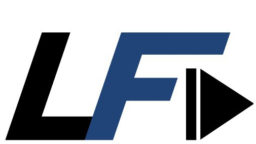CAPASSO (Composers, Authors and Publishers Association) has said that ‘streaming revenue across multiple territories in [in Africa], excluding South Africa, has had an increase of over 62% year on year’.
The Johannesburg-based agency has in recent years led the creation of a centralized hub and digital licence for pan-African repertoire.
The hub consists of 17 CMOs from countries in Africa, and according to Music in Africa, ‘offers licensees repertoire on a multi-territorial basis in order to facilitate ease of access to a high-potential emerging market’.
Speaking to Music in Africa, CAPASSO Chief Operations Officer Wiseman Ngubo said that “we are of the belief that Africa is on the brink of a streaming boom”.
Ngubo added that the streaming growth over the past year is “directly attributable to the consolidation of rights and repertoire via the hub”.
Participating countries in the hub include the likes of Algeria, Burkina Faso, Nigeria, Kenya, Ghana, Senegal, Rwanda, Cape Verde and Namibia, among others.
Africa’s collective digital collections have grown 32% over the past four years, according to the article.
“Our numbers indicate that streaming revenue across multiple territories in the region, excluding South Africa, has had an increase of over 62% year on year,” said Ngubo.
“This signals the readiness and the appetite for streaming, thus we as CMOs must gear up to facilitate that access. This growth is directly attributable to the consolidation of rights and repertoire via the hub.
“Even in South Africa where there is positive penetration, there is still huge potential for growth”
“Setting up the hub and putting licences in place is only but the first part of the process. We now need to encourage all our composers across the continent to provide metadata, which is key to collections.”
Jotam Matariro, CAPASSO (Pictured main)
CAPASSO CEO Jotam Matariro added: “Setting up the hub and putting licences in place is only but the first part of the process.
“We now need to encourage all our composers across the continent to provide metadata, which is key to collections.
“Without metadata, we will not be able to benefit from the licences that we have put in place, as collections are based on the works’ information that we are able to identify from the massive reports that the DSPs provide to us on a regular basis.
“We therefore call upon all music authors and composers as well as publishers across the continent to notify their works so we can make this process beneficial to all.”Music Business Worldwide


